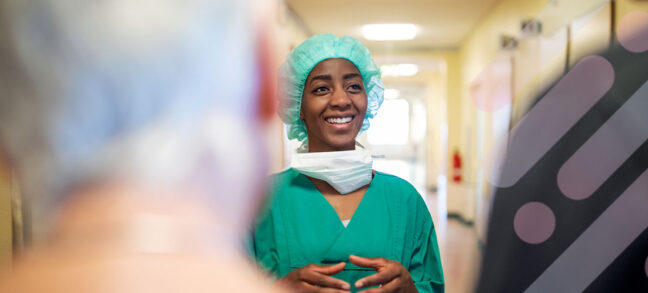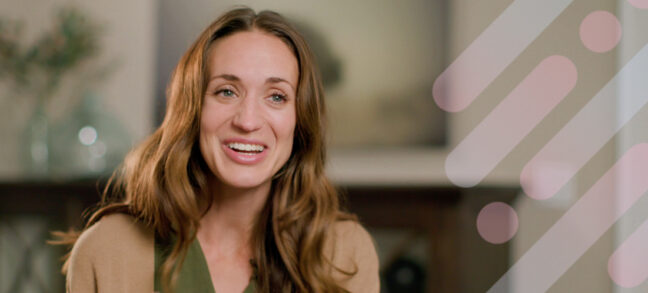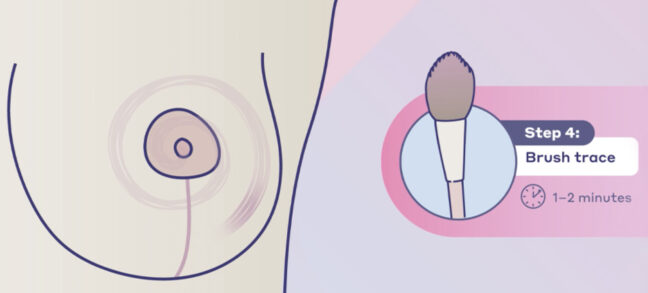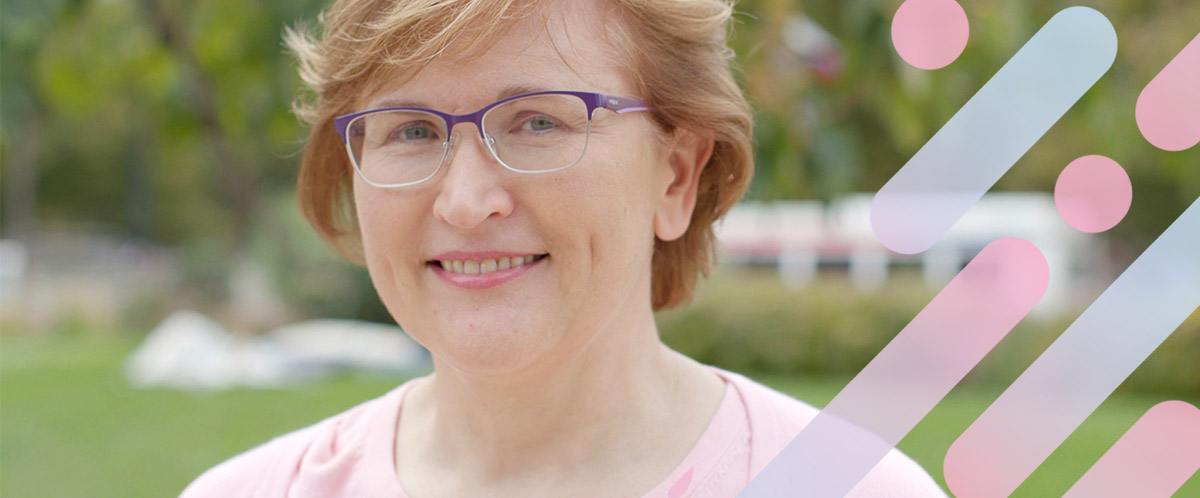from biostatistician to statistic
Katy understands numbers. At work, she designs clinical trials to help find better cancer treatments. And in her family, her mom and grandmother both had breast cancer by the time they were in their 50s.
At 49, her annual mammogram showed suspicious calcifications. “I’m trained as a biostatistician. When told I had a 40% lifetime risk of breast cancer, I knew what that meant, and I could calculate all the probabilities, potential outcomes and risks.”
more natural—less foreign
Katy knew about free flap reconstruction—when a woman’s own tissue is used to recreate the breast—because a friend had the procedure a decade ago.
“I liked the idea of my own tissue being the source of my new breasts. I didn’t like the idea of a foreign object in my body, something that could rupture, leak or need to be replaced.”
improving expectations
Feeling and sensation didn’t occur to Katy until she was referred to surgeon Dr. Suhail Kanchwala. He explained how removing the breast tissue involved severing the nerves in the breast, but there may be an option to restore sensation.
“We focus so much on how things look, but we don’t focus enough on what it feels like,” she said. “I’m someone who tends to prefer function over form, so my initial set of expectations—to use my own tissue and look normal in a dress—were appallingly low.”
advancing technologies
Dr. Kanchwala told Katy about the Resensation® technique. It’s an additional step during reconstructive surgery that reconnects the nerves in the newly reconstructed breast with the nerves in the chest, which can potentially restore feeling.
“My goal is for patients to feel normal—to forget they’ve had a mastectomy. But the sensation piece is an incredible part of that,” he said. “Resensation is about getting the breast to feel natural and normal, not just look natural and normal.”
Katy knew Resensation was the right choice for her. “I work in cancer research. I know progress takes time. It also takes people being willing to try things, surgeons being willing to try new techniques, and women seeking out new technologies and realizing it can be possible to have more.”
moving forward
There wasn’t one particular moment when Katy suddenly had sensation again, because nerve growth is a gradual process.
“If I knew from the beginning there was no hope of ever gaining any sensation, I still would’ve gone ahead with surgery, because being cancer-free is more important than anything.
“But I didn’t have to make that trade-off. I didn’t have to choose between feeling like myself and being free of cancer. I got to have both,” she said. “Whether it’s my cat walking across me in bed, or just when I hug my children, it feels like me—ordinary, and that’s the best thing of all.”
educating others
Working in cancer research, Katy knew precisely how scary cancer can be. “A lot of people are afraid when it comes to cancer, and rightfully so. Treatment can be awful, surgery can be awful, and fear of dying, disfigurement and disability are all real.
“But it doesn’t have to be disfiguring. It doesn’t have to be scary and awful,” she said. “It can be a positive thing to have a body that’s free of cancer and still feels like you.
“Women should seek out information, try not to let fear be their driving force, because people are really willing to help,” she said. “It’s amazing when you’re vulnerable, when you need help, people who’ve been through this before can help you make the choice that’s right for you.”
Resensation Articles

How does mastectomy impact the nerves in the breast?
One sometimes overlooked aspect of mastectomy is its impact on nerves. Read what happens to nerves during mastectomy and explore…
Read More
What happens during implant breast reconstruction with Resensation®?
By repairing sensory nerves, Resensation® enables you to potentially regain sensation to your chest. Read how this procedure works during…
Read More
how resensation® helped Leanna feel secure in her family’s future
With Resensation®, Leanna can be there to watch her kids grow up—without losing the feeling of being whole.
Read More
post-surgery sensory retraining: instructions and video guide
Sensory retraining is a series of exercises designed to help you reconnect with your body after breast reconstruction with Resensation®.
Read More